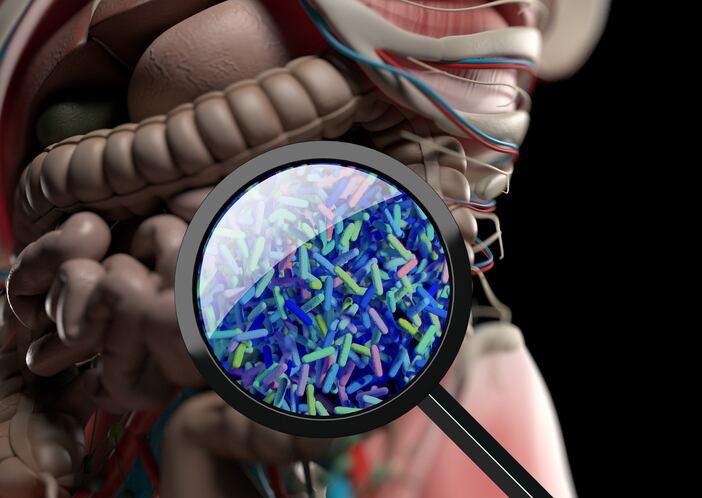In addition, the drink product boosted the richness of the gut bacteria, energy metabolism and the production of amino acids, which are linked to better gastrointestinal health, wrote Hercia Stampini Duarte Martino, researcher at the Federal University of Viçosa, Brazil, and colleagues in Nutrients.
Chronic kidney disease
CKD is a slow and progressive disease where the kidneys are damaged and filter the blood less effectively than normal. The consequent build up of toxins in the blood increases the risk of complications, cardiovascular disease and even death. The condition is expected to become increasingly prevalent globally as the population grows and ages.
Mounting evidence points to CKD causing intestinal dysbiosis where fewer beneficial bacteria such as Lactobacillus and Bifidobacterium can grow. Meanwhile, potentially harmful bacteria such as Escherichia coli and Clostridium spp. can become more numerous and lead to damage to the gut and systemic inflammation, the investigators wrote.
There is increasing evidence that cereals combined with probiotic supplementation can improve gut health in healthy people in addition to people with lactose intolerance and CKD. For example, they can increase the bacterial production of short-chain fatty acids (SCFAs), which help to maintain gut health, the researchers said.
Combining a cereal and probiotic
In a previous single-blind, controlled trial, the researchers tested the benefits of a sorghum cereal and probiotic combination in patients over the age of 18 with CKD and who had been submitted to hemodialysis three times per week for at least three months. The latest analysis used data from a subsample from the previous trial, including 39 volunteers that had donated stool and blood samples at the start and finish of the treatment period.
In the trial, participants (mean age of 26.81 and 69% men) were randomly assigned to receive seven weeks of treatment with either a symbiotic meal (100 mL of unfermented probiotic milk with 2.5 × 106 colony-forming units/mL Bifidobacterium longum and 40 g of extruded sorghum flakes) or a control meal consisting of 100 mL of pasteurized milk and 40 g of extruded corn flakes.
The investigators found no baseline anthropometric differences between the symbiotic group (n=19) and the control group (n=20), with an overall mean waist circumference of 96.88cm. In terms of body mass index (BMI), 15% were considered overweight, 60% were at a normal weight, and 25% were underweight.
Participants given the symbiotic drink saw a drop in BMI of 0.08 over the course of the study while the control group saw an increase of 0.59 even though there were no significant changes in food intake over time. The researchers said “the administration of Bifidobacterium longum has been associated with other microorganisms and weight loss in obese individuals due to reduced microbiome lipopolysaccharides and a consequent increase in satiety.”
They also found that patients in the symbiotic group saw drops in blood levels of uremic markers of disease by the end of the treatment period. In particular, levels of indole-3-acetic acid (IAA) fell from 24.21 µg/L to 18.19 µg/L and p-cresyl sulfate (p-CS) dropped from 386.47 mg/L to 241.13 mg/L. However, the changes were not statistically significant relative to the placebo group, and other uremic markers such as urea and creatinine saw no changes.
The researchers also observed slightly more of the symbiotic group than the control group (63.1% vs 60%) were free of gastrointestinal symptoms including constipation, nausea, heartburn, bloating, intestinal gas, diarrhea or belching. Additionally, both treatment groups produced more of the SCFAs acetic and propionic acid by the end of the treatment period, with no differences between the groups.
Mapping the microbiota
When the investigators sequenced DNA from participants’ stool samples, they found that the richness of the microbiome (α-diversity) was higher after seven weeks in participants taking the symbiotic drink than at baseline. However, they only noted a significant difference in the Chao 1 index, and not in other indices of microbial richness.
Based on these results, the investigators wrote: “Although more species may have been introduced or flourished due to treatment with the symbiotic meal, the abundance of the dominant species was not significantly changed. Therefore, the symbiotic meal may have contributed to a greater diversity of rare species in the intestinal microbiota without modifying the general structure of the microbial community.”
When comparing the genomic data with reference genomes, the team also predicted that the symbiotic meal boosted cellular processes including energy metabolism, amino sugar metabolism and essential amino acid production, which they said were “related to improved immune function, oxidative stress and immune response.”
Commenting independently, Claire Merrifield, co-founder and director at the UK firm Selph, said "a major limitation of this study was that these interventions were not assessed individually so it’s unclear whether the effect was mainly from the probiotic or from the whole grain."
"Given that CKD creates such a global health burden, I would like to see efforts in using nutraceuticals for prevention of CKD rather than treatment," she added. "Large clinical trials using carefully selected nutraceutical ingredients in patients predisposed to developing CKD would be of real academic and clinical significance.”
Source: Nutrients 2024, 16(12), 1852
“A Symbiotic Meal Containing Extruded Sorghum and Probiotic (Bifidobacterium longum) Ameliorated Intestinal Health Markers in Individuals with Chronic Kidney Disease: A Secondary Analysis of a Subsample from a Previous Randomized and Controlled Clinical Trial”
doi: https://doi.org/10.3390/nu16121852
Authors: Haira Guedes Lúcio et al.

